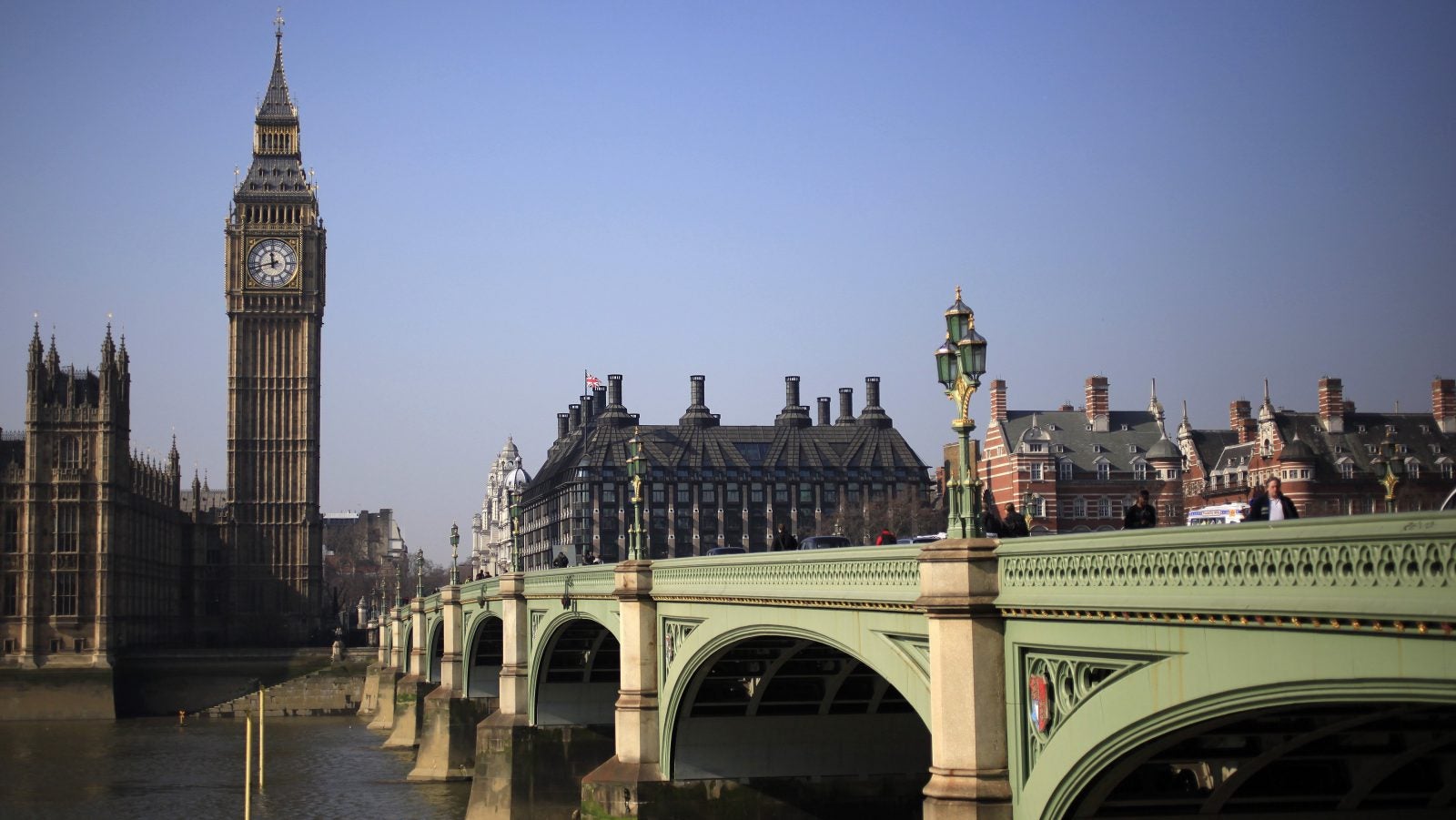British politicians on the left and right skewered Trump’s “Muslim ban” with scorn and literary allusions
Debate, in the age of the internet, can descend into little more than a savage exchange of expletives and insults. The actions of Donald Trump as US president have ramped that up to a collective howl of despair—or of jubilation, depending on your perspective—in recent days.


Debate, in the age of the internet, can descend into little more than a savage exchange of expletives and insults. The actions of Donald Trump as US president have ramped that up to a collective howl of despair—or of jubilation, depending on your perspective—in recent days.
But for three hours last night in the UK parliament British politicians from both ends of the political spectrum managed to hold a debate that was eloquent, passionate, and often ludicrously polite—and to eviscerate Trump’s executive order banning travel to the US from seven majority-Muslim countries plus all Syrian refugees in the process.
Ed Miliband, former leader of the Labour Party, called the debate, and argued against what he called the “lunacy” of Trump’s order, arguing that it would make the world more dangerous:
Americans and, indeed, people in this country are fearful about the threat from ISIS and wider terrorist networks. Those fears are understandable and we must respond to them…but it is not enough to say that we are fearful, or that our citizens are fearful; we then have to weigh whatever actions are proposed or taken. Understandable fears cannot be an excuse for the suspension of reason and rationality—that applies to the Trump Administration in a whole number of areas. The only way to understand the ban is that it represents the suspension of reason and rationality. Indeed, it has perversity, discrimination and divisiveness at its heart.
Accounts of individual detentions and deportations were “chilling,” Miliband said, recalling “the actions of a tin-pot dictatorship.”
“They did not sound like what we would expect or hope for from the United States,” he added.
Conservative MP Nadhim Zahawi, a British citizen born in Iraq, also talked about the weekend when the executive order was imposed:
I learned that ability to travel to the United States—a country that I revere so much for its values, for which I have such great affinity, affection and admiration, and to which I have sent both my sons to university—was to be denied to me. I learned that this great nation had put in place measures that would prevent my family and me from traveling, studying and feeling welcome there. I was concerned about the next time I would see my boys, given our reluctance to let them fly home in case they were prevented from returning to university. My wife and I despaired at the thought that, had one of our sons again been taken as seriously ill as he was last year while at university, we would not be able to go to him when he needed us most. Similar sentiments have been felt by many families in the UK and around the world over the weekend.
But he rejected calls in the UK to stop a potential state visit from Trump:
“I think we should welcome President Trump to the United Kingdom at the earliest opportunity, so that we might personally engage in meaningful dialogue with our closest ally in the hope of a change in stance,” he said.
Throughout the session, there was a notable consensus that the ban was wrong. “There is no division on the Government or Opposition Benches about the fact that this ban is basically a repugnant, abhorrent thing,” Milliband summed up towards the end, and the House resolved that the ban was “divisive and counterproductive.”
More than one member of parliament quoted the poem inscribed on the Statue of Liberty, while Miliband at one point referenced Ernest Hemingway. Naz Shah, a Labour MP, quoted Pastor Martin Niemöller, a critic of German intellectuals who failed to speak out during the rise of Nazism:
First they came for the socialists, and I did not speak out—because I was not a socialist.Then they came for the trade unionists, and I did not speak out—because I was not a trade unionist.
Then they came for the Jews, and I did not speak out—because I was not a Jew.
Then they came for me—and there was no one left to speak for me.
She added:
I do not want to be on the wrong side of history when there is another genocide; Srebrenica happened in my lifetime. Where does the slippery slope really lead when we demonize Muslims and those seeking refuge on our shores?…We cannot stand by silently: to do so would be the greatest shame of our nation.
Hilary Benn, also from the Labour Party, delivered some of the debate’s most literary sentences (referring to the Islamic State as “Daesh,” as it’s sometimes known): “Our best defense against the lethal obscurantism of Daesh is to cleave ever more strongly to the values that make us proud to be British.”
Simon Burns, a Conservative, summed things up more succinctly: “[T]his ban is nasty, it is immoral and it will not succeed.”